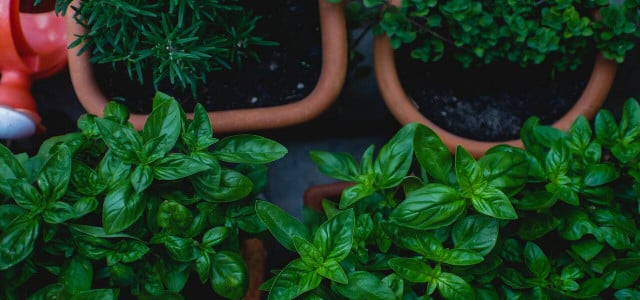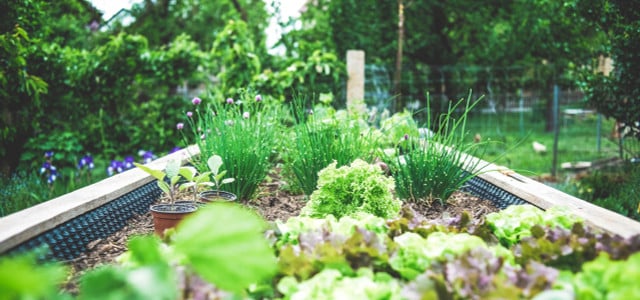Interested in making an herb garden and wondering which herbs to plant together? Companion planting with herbs can have several benefits, keep reading to learn more.
Companion planting is a popular method in the vegetable garden because certain plants can benefit others. Herbs are quite interesting in that their fragrances can drive pests away, entice beneficial insects to your garden, as well as enhance the flavor of neighboring plants. Knowing which herbs to plant together can make a real difference.
Sometimes, companion planting with herbs has to do with matching the growing conditions, meaning the herbs require the same care. Other times, it’s all about improving the flavors of nearby plants.
Benefits of Companion Planting
Companion planting is not only suitable for vegetables, it can also be used with flowers and herbs. Advantages of learning this type of gardening practice includes:
- Repel insects and pests: you can keep certain crops pest free by planting the right plants around one another.
- Improve soil nutrients: certain crops add important nutrients like nitrogen back into the soil, which can be especially advantageous if you have other plants that require plenty of nutrients.
- Attract beneficial insects: using certain plants will help attract pollinators like honeybees to your garden, which is important for species that require cross-pollination in order to grow.
- Encourage faster growth: certain herbs, including marjoram and summer savory, actually release chemicals to encourage faster growth
- Improve flavor: similar to encouraging faster growth, chemicals released by other plants can help improve flavor of both vegetables and herbs alike.
- Provide ground cover or shade: depending on the type of plants, taller, sun-loving plants can help provide shade to plants below. Other plants, like oregano, can spread out over the ground and protect moisture levels in the soil.
Mediterranean Herbs to Plant Together
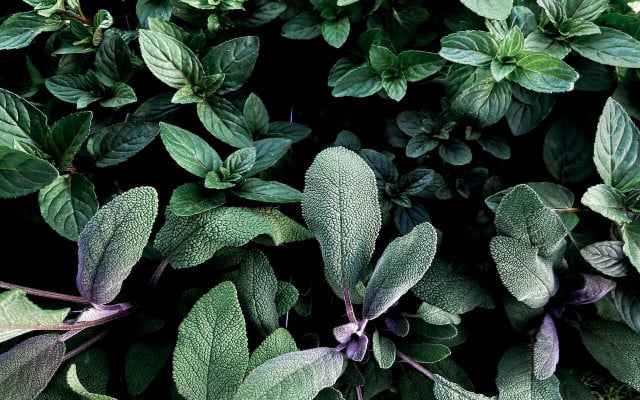


Mediterranean herbs require plenty of sunshine, and well-draining soil in order to mimic their native growing conditions. You can use these herbs in dishes like briam and homemade pizza. Mediterranean herbs that grow well together include:
- Lavender
- Marjoram
- Oregano
- Rosemary
- Sage
- Tarragon
Tarragon is a bit of a powerhouse in the garden, as it will enhance the flavor of any herb it’s planted next to. Therefore, it doesn’t need to be exclusively planted with other Mediterranean herbs.
Companion Planting: Moisture Loving Herbs
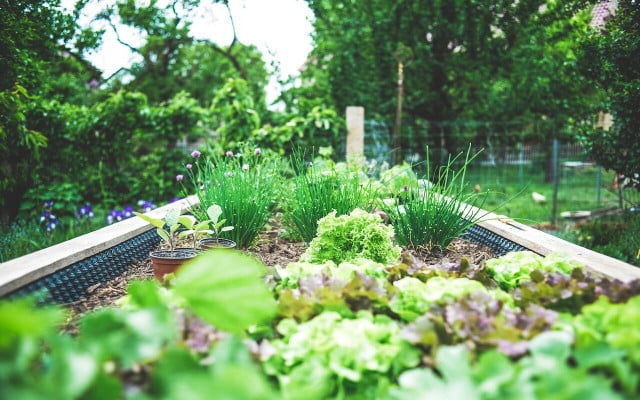


Planting moisture-loving herbs together make it easier to ensure they’re receiving the care they need. Consider using moisture-loving herbs in dishes like falafel, homemade pesto, or scafata. You can plant these herbs together and they’ll be happy:
- Parsley
- Basil
- Chives
When planting herbs together, make sure you plant them deep enough so their roots have room to spread out, and far enough apart to allow the herbs to bush out.
Similar Scented Herbs to Plant Together
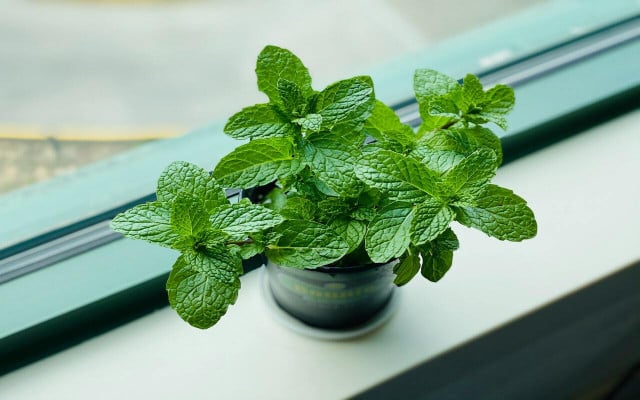


You probably weren’t aware of how many lemon-scented and flavored herbs there were, and this is just a short collection. By planting these together, you can not only enhance the lemon flavor and scent, you can also naturally repel mosquitos!
- lemon balm
- lemon verbena
- lemongrass
- lemon verbena
- lemon thyme
- lemon basil
When it comes to mint-scented herbs, you’re best off planting them on their own because mint is an aggressive and fast spreader. If you plan on growing mint, avoid planting more than one variety of mint together, they will lose their distinct flavors.
Other Herbs to Plant Together
Depending on the size of your garden or container, you may only want to plant a few herbs together. If that’s the case, you can use this rough guide to see which common herbs pair well together when companion planting.
- Basil: oregano, parsley
- Bay leaves: rosemary, sage, thyme, parsley
- Chives: dill, marjoram, parsley, tarragon
- Dill: chives, lemon balm, lemon thyme, lovage
- Marjoram: basil, chives, oregano, parsley, rosemary, sage, thyme, lavender
- Oregano: basil, chives, parsley, rosemary, sage, savory, thyme
- Parsley: basil, chives, dill, fennel, lavender, lemon balm, lovage, marjoram, oregano, rosemary, sage, savory, thyme
Read more:
- How to Grow a Herb Garden on Your Windowsill
- 10 Flowering Vegetables You Can Grow in Your Garden
- 7 Natural Pesticides for Your Home and Garden
Do you like this post?






